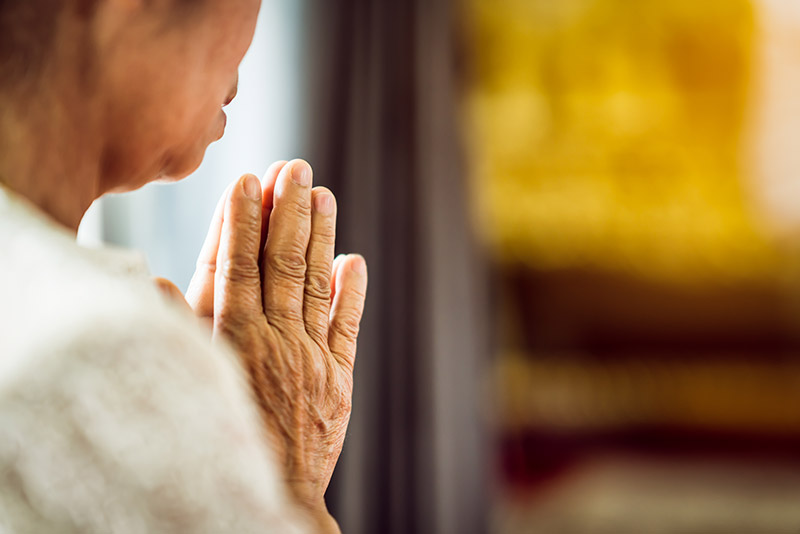The Importance of Cultural Sensitivity in Senior Care
As our society grows increasingly diverse, cultural sensitivity in senior care has become a vital part of compassionate caregiving. Understanding and respecting seniors’ cultural backgrounds isn’t just about politeness — it’s about providing care that’s both respectful and effective.
By acknowledging and adapting to seniors’ cultural perspectives, traditions, and needs, caregivers can forge better connections, provide more personalized care, and ensure that each senior receives the respect and compassion they deserve.
Why cultural sensitivity matters
Cultural sensitivity in senior care (also known as cultural competency) is about recognizing, respecting, and accommodating each senior’s unique cultural background. This approach helps build trust between caregivers and seniors, which is a central part of effective care.
We often think of cultural sensitivity as synonymous with respectfulness or “political correctness,” but when it comes to caregiving, cultural competency goes far beyond just respect.
Cultural differences can impact all aspects of care, including communication styles, dietary preferences, religious practices, and views on medical interventions and end-of-life care. Even certain gestures, eye contact, and physical contact may carry different meanings across cultures.
Imagine, for example, a situation where a caregiver is becoming frustrated with a patient because they refuse to eat. The caregiver thinks the patient is being unreasonable and combative, when, in reality, the patient keeps kosher and is unable to eat the provided food because it wasn’t prepared correctly.
For a more subtle example, let’s say that a caregiver is taking care of a patient from Japan and looks her in the eye while speaking to show respect. The patient may actually perceive the direct eye contact as rude or even aggressive, making it difficult for the two to form a comfortable relationship.
These misunderstandings and unintentional offenses can lead to discomfort or feelings of disrespect, damaging the patient-caregiver relationship and making it harder to provide effective care. Language barriers can further exacerbate these challenges, leading to frustration and miscommunications.
Benefits of culturally sensitive care
Implementing culturally sensitive practices into senior care can enhance care quality, as seniors feel more understood and valued, leading to better mental and emotional health. Families of seniors are also more likely to be satisfied with the care provided when it respects their cultural norms and values.
The benefits also extend to caregivers themselves. When caregivers are equipped with cultural sensitivity training, they are better prepared to handle the diverse needs of their patients, reducing the risk of misunderstandings and conflicts. The result is a more supportive, understanding care environment and better personal connections between caregivers and patients.
Ensuring cultural sensitivity in senior care
While it’s impossible to learn every custom and nuance of each individual culture, basic training on cultural norms, languages, dietary restrictions, religious practices, and acceptable behaviors is a great place to start.
However, this can sometimes lead to negative stereotyping and harmful biases. So the real key to providing culturally sensitive care is simply to ask questions and get to know each patient as a person, rather than making assumptions or biased judgments.
Caregivers should make a genuine effort to personalize care by learning and accommodating individual cultural preferences and needs. This might involve asking about the right way to address a patient, learning about any religious or cultural practices they adhere to, and being mindful of dietary restrictions and healthcare requirements.
But it’s also important to avoid “othering” seniors from different backgrounds and cultures and making them feel like their cultural preferences and needs are strange or a burden. After all, we’re all humans deserving of dignity and respect.
Making culturally sensitive care our mission
Respecting and accommodating seniors’ cultures and traditions isn’t just a nice thing to do — it’s an essential aspect of holistic care. That’s why Right Hand Care ensures our at-home caregivers get to know each patient on a personal level and build real relationships.
Respect, dignity, and compassion are at the center of our mission, and we strive to help every senior and their family feel safe, comfortable, and supported.
If you’d like to learn more about our in-home care services or set up a personalized care plan, contact us today.

We are Superheroes in Comfortable Clothes™
We take care of our clients, their families, our staff, and our league of franchise owners.

